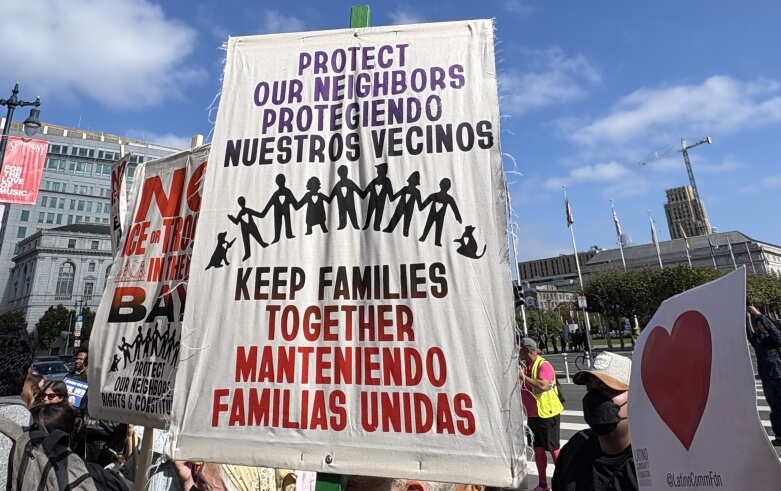Inside ACLU NorCal’s Training Program to Empower Immigrant Communities to Take Action
Page Media

For much of his life, Luis Ojeda, interim organizing director at the ACLU of Northern California, heard the message given to countless immigrants and undocumented people: stay quiet, keep a low profile, and don’t draw attention to yourself. Fear, he’d been taught, was the safest strategy. But in college, while working alongside other immigrant youth advocating for the DREAM Act, Luis discovered a new approach — one that prioritized visibility and collective action over isolation and fear. “That was the first instance of me being exposed to a different approach — that the best way forward is to build community, talk to other immigrants, and advocate for the things we want and deserve,” he explains.
Meeting other people who felt empowered, who believed they could make a difference, “That was my political awakening,” Luis says. “That was the beginning.”
Today, that philosophy and spirit of collective power drive the monthly immigration advocacy training series that Luis helps lead for the ACLU of Northern California.
The series launched in March as the Trump administration began unleashing a wave of executive orders targeting immigrant communities. What was initially conceived as a temporary response to the moment has become something more enduring — a monthly gathering drawing an average of eighty participants per session from across California.
The trainings are designed both to inform and empower. Each session begins with updates on news and developments, what’s happening in the White House, Congress, and the courts, and how the ACLU is fighting back. “We do these every month, and sadly, every month, there are major headlines around immigration,” Luis notes.
Following these updates, each training session dives deeper into a particular topic. The May session reflected on the first 100 days of the administration and the growing deportation machine targeting students, asylum seekers, and undocumented immigrants. In June, members of the ACLU’s legal team joined the session to break down United Farm Workers v. Noem, an important case the ACLU brought against the Department of Homeland Security and Customs and Border Protection. The September gathering focused on local advocacy to hold elected officials accountable. Past sessions have covered everything from advocating at school board meetings to understanding state and federal legislation to engaging with city councils.
One particularly urgent topic has been preparing schools for potential contact with immigration enforcement. Previous administrations designated certain locations — including schools, churches, hospitals, and health clinics — as “sensitive locations” where ICE activity was generally not allowed. Cruelly, the Trump administration rescinded these protections through executive order, creating new risks for immigrant students and their families.
While widespread ICE activity at schools hasn’t yet materialized at the scale seen in other settings like court houses, Luis emphasizes the importance of preparation. “Now is the time to prepare in the event that those things happen,” he says. California has state laws and model policies guiding schools on how to respond when ICE appears on campus, but implementation of these plans varies by district.
The trainings inspire concrete action. The April session on school board advocacy, for example, prompted the ACLU NorCal Santa Clara chapter to launch its own project analyzing district policies around ICE enforcement and identifying areas for improvement.
But beyond the monthly topics, every session highlights critical rapid response networks — community organizations that provide immediate support when ICE activity occurs. Participants are encouraged to volunteer or, at minimum, save the hotline numbers to report ICE activity. The trainings also point people to the ACLU’s updated Know Your Rights resources, including guidance on what to do if ICE confronts you, at home, at school, or at work. “Being connected to an organization or rapid response network means having access to resources and support,” says Luis. “Someone who is isolated and unsure of how to seek help, could go through the deportation process alone, without anyone knowing, without anyone able to help.”
If there is one thing Luis wants people to understand, it is this: “We are not powerless in this moment. We all have a role to play, and we all need to be doing something. How do we take care of each other and take concrete action in this moment?”
For those ready to heed Luis’s call to get involved, send an email to changemakers@aclunc.org. Recordings of past Immigration Series webinars are available on the ACLU NorCal YouTube channel, and future sessions continue monthly.
